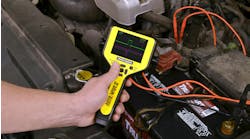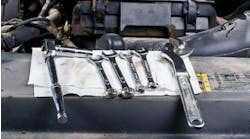Question: Should I bolt down my tire safety cages?
Answer:
All tire inflation cages must be free-standing and never anchored to a floor, or even a portable surface. This is for good reason. During a catastrophic lock ring failure, the separated lock ring and the wheel strike the opposing inside walls of the cage with the same amount of force. This bows the tubes on each side outwards, which causes the top to cave down and the base plate to bow upward along its central length. All this deformation is necessary in order to absorb and dissipate the blast force. If the base plate is anchored, it cannot flex, which can result in the base of the tubes being torn from the plate. The blast force, and possibly some wheel components, will not be contained. The bolts used to fasten to the floor can shear off and become projectiles resulting in potential injury and damage.
In addition, the safety cages should not be modified in any way. All inline regulators, automatic and manual, should be a safe distance from the cage and out of the blast zone. They should not be attached to the cage or in between cages on the wall. Anything that is affixed to the cage can now become a projectile causing potential injury and or damage.
Finally, tire inflation cages should be located such that the sides are at least three feet from any wall or flat surface, another cage, or other shop equipment. It has been shown that the force of an air blast from a zipper rupture can demolish a concrete block wall if the side of the cage is positioned next to it. Cages are generally placed with one open end toward a wall, with plenty of empty space on each side.
Information provided by Ken-Tool




